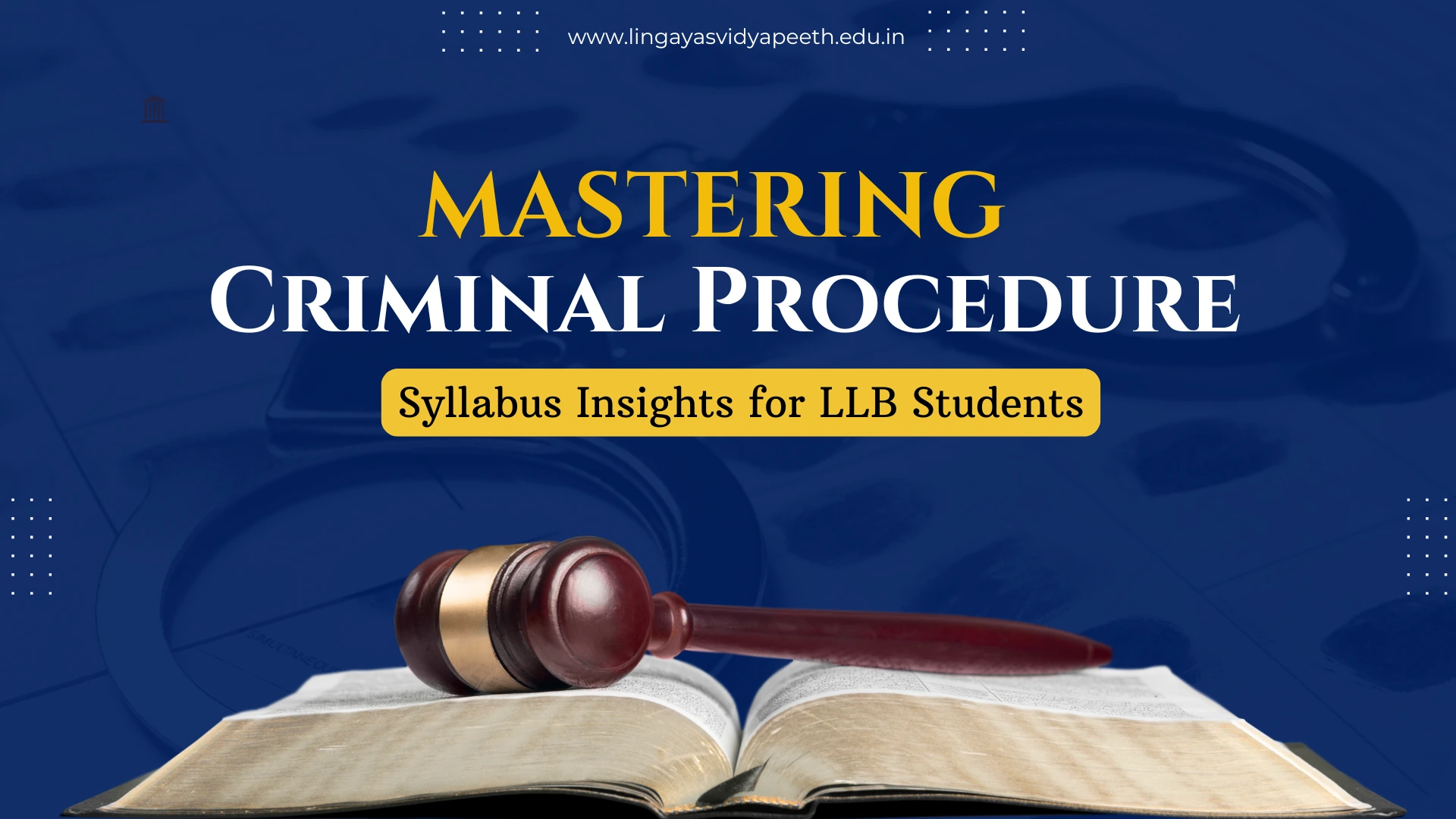Home » Understanding the Criminal Procedure: A Guide for LLB Students

The study of criminal law is an integral part of any LLB curriculum, and the Criminal Procedure Code (CrPC) forms its backbone. As future legal professionals, understanding the procedures and principles that govern criminal justice is essential for law students pursuing an LLB Program. This guide offers an overview of the criminal procedure syllabus, breaking down its key components and helping you navigate this critical subject with confidence.
The Criminal Procedure Code outlines the framework for administering criminal justice in India. It governs the processes of investigation, inquiry, trial, and appeals in criminal cases. Mastery of CrPC is vital for aspiring lawyers, judges, or law enforcement officials, as it forms the basis of their professional responsibilities.
Studying criminal procedure equips students with the knowledge to:
Transformative Impact of India’s New Criminal Laws
Understanding the basics of criminal procedure is the starting point for LLB students. This section covers:
The CrPC serves as the primary legislation governing criminal procedures in India. Key topics include:
Rules on an advocate’s duty towards the Court
Before a criminal case reaches the courtroom, several pre-trial steps are undertaken. These include:
The trial phase is central to criminal procedure. Topics covered include:
Understanding the roles of key legal professionals is crucial:
How Do Legal Systems at the Nexus of Law and Society
Special procedures for juvenile offenders are an important part of criminal procedure. This includes:
Comparing criminal procedures across jurisdictions broadens understanding. Topics include:
Theoretical knowledge must be complemented with practical exposure. Students should:
The Criminal Procedure Code is a fundamental pillar of the Indian legal system and plays a vital role in shaping the LLB curriculum. By mastering the syllabus, students can develop a strong foundation for a career in criminal law. Whether your goal is to become a criminal lawyer, a judge, or work in law enforcement, understanding CrPC is essential for your success.
If you’re ready to build a career in law and dream of mastering the complexities of the legal system, Lingayas Vidyapeeth is here to guide you. Lingayas Vidyapeeth – Best Law Colleges in Delhi NCR, offers an excellent environment for aspiring legal professionals with top-notch faculty and comprehensive learning resources.
From
Ms. Ruchi Kaushik
Assistant Professor
School of Law
Lingaya’s Vidyapeeth
Top LLB Colleges in Delhi NCR
RECENT POSTS
CATEGORIES
TAGS
Agriculture Agriculture future AI Architecture artificial intelligence BA English BA Psychology BTech CSE BTech Engineering Business management career Career-Specific Education career guide Career Opportunities career option career scope Civil engineering commerce and management Computer Science Computer science engineering Data science degree education Engineering Engineering students English Literature english program Exam tips Fashion Design Fashion design course Higher Education Journalism journalism and mass communication law Law career Machine Learning MA Psychology Master degree mathematics MBA Mechanical Engineering Pharmacy Psychology Research and Development students
University Address: Nachauli, Jasana Road, Faridabad, Haryana
Toll Free: 1800-120-4613
Mobile : 8447744303 | 8447744304 | 8447744306 | 8447744309
Address: C-72, Second Floor, Shivalik, Near Malviya Nagar,
Above HDFC Bank, New Delhi 110017
Ph.No. - 011-46570515 / 45138169 / 41755703 / +91-7303152412
Jagmani Kutir, Ground Floor, Road No-1, Rajeev Nagar,
Near Darbar Marriage Hall, Patna-800024, Bihar
Contact No: 9818352069/8130120095
Mail: [email protected]
Copyrights © 1998 - 2025 Lingaya's Vidyapeeth (Deemed To Be University). All rights reserved.
It is important to note that the following email IDs and domains are fraudulent and do not belong to our university.
LV only conducts physical/online verification of any document related to examination on the following email id: